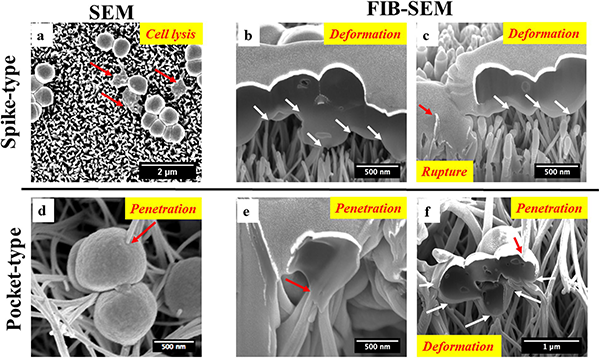The direction of travel here at Newcastle (and I’m sure at many other institutions too) seems to be towards interdisciplinary research. Having just helped to secured funding for an exchange programme with Monash University, Melbourne on Drosophila nutrition and host-microbe interactions, I thought I would reflect on a couple of my experiences with interdisciplinary science.
One of my most rewarding collaborations is with Dr Vicky Chen in the School of Engineering. We have co-supervised a number of projects looking at the interface between microorganisms and their physical environments. Two PhD students (Nehir Kandemir and Subash Chinneraj) are just coming to the end of their studentships and both are writing papers. Yunyi Cao completed his MPhil and has moved swiftly on to a PhD. Yunyi’s MPhil work was published this year in Nature Scientific Reports. This is a great example of how he has combined surface engineering with microbiology:
 Interactions of Staphylococcus epidermidis with nanostructured surfaces. Note how the nanospikes appear to penetrate the bacterial cells. S. epidermidis is a major cause of medical device infections, and surface modifications can potentially inhibit colonisation. From Cao et al. (2018) Sci Rep 8: 1071.
Interactions of Staphylococcus epidermidis with nanostructured surfaces. Note how the nanospikes appear to penetrate the bacterial cells. S. epidermidis is a major cause of medical device infections, and surface modifications can potentially inhibit colonisation. From Cao et al. (2018) Sci Rep 8: 1071.
I have also greatly enjoyed working with computer scientists over the last few years. Locally, we work with Prof. Nat Krasnogor’s group in the School of Computing. Nat has helped us to build computational models of structured microbial communities. Predicting how communities form is an important step towards controlling unwanted biofilms, such as dental plaque on the surface of our teeth. I also work with bioinformaticians both locally and in China (Prof. Siew Woh Choo) to analyse the sequence of microbial genomes and how they are expressed under different conditions.
Not all interdisciplinary collaborations work out, but my experiences have been very positive so far. As science is becoming ever more complex, I personally believe that combining expertise from different disciplines is by far the best approach to tackle the most complex problems. I am very grateful to my amazing collaborators for all their help, and I look forward to the new project on Drosophila nutrition.
